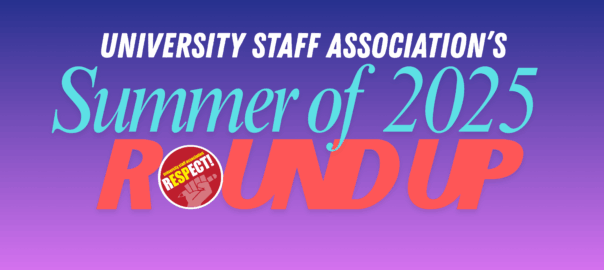Hi everyone! My name is Chris Weeks, project manager on the USA website redesign project. When I decided to run for Recording Secretary, I flagged a website redesign as something I thought was a high priority and a project I …

Growing Solidarity, USA’s Contract and More: USA’s Post-Summer Round-Up
The contract is settled, but USA is laying the foundation for the next few years.
By the University Staff Association (USA) Communications Committee
Just as quickly as summer started, the start of the Fall semester can feel like a whirlwind. …
Bargaining Update 6-18-25
Bargaining meetings are now all-day meetings, with a break for lunch. They will still be biweekly on Wednesdays. If you’re interested in being an SBR but haven’t been able to make the morning times, the afternoon meetings are a great …
Bargaining Update 11-20-24
November 20th, 2024
Action Items
UMass Classified Staff statewide are overworked and underpaid! Join your sibling unions in signing the petition below in our fight for a living wage.
Contract Corner 3: Management Retreats to DLR to Force Mediation
By the University Staff Association (USA) Communications Committee
As USA enters month number ten at the bargaining table with University management, USA continues to hold firm in their demands. The bargaining team insists on realistic wages and benefits for staff …